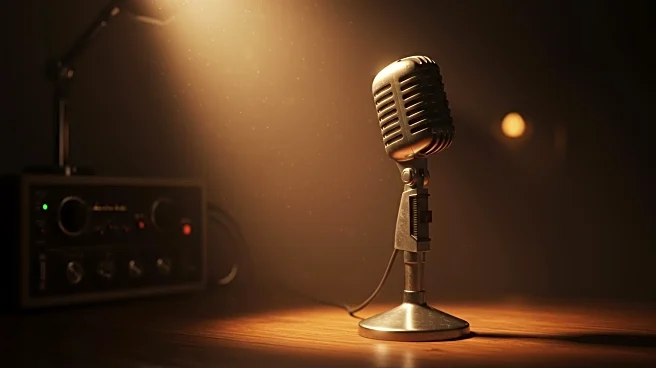What's Happening?
Marc Maron, a well-known comedian and podcaster, has announced the end of his long-running podcast 'WTF,' which he started in 2009. In a recent interview, Maron expressed dissatisfaction with the current state of the podcast industry, describing it as 'mediocre.' He lamented the proliferation of podcasts, particularly those featuring groups of hosts discussing trivial topics, which he believes has lowered the overall quality of content. Maron's podcast, known for its in-depth interviews with various guests, including comedians, actors, musicians, and even a sitting president, will conclude in the fall. Maron has been vocal about his distaste for the current podcast environment, which he feels is saturated with unremarkable content.
Why It's Important?
The conclusion of Marc Maron's 'WTF' podcast marks the end of an era in the podcasting world, as it has been influential in shaping the medium over the past 16 years. Maron's critique of the podcast landscape highlights concerns about content quality and originality in an increasingly crowded market. As podcasts continue to grow in popularity, his comments may prompt industry reflection on the balance between quantity and quality. This development could impact aspiring podcasters and established creators alike, as they navigate a competitive environment where standing out requires more than just having a platform.
What's Next?
With 'WTF' coming to an end, Marc Maron may focus on other creative endeavors, potentially influencing the podcast industry by setting new standards for content quality. His departure from podcasting could lead to discussions among creators and listeners about the future direction of the medium. As Maron transitions away from 'WTF,' the podcast community may see shifts in listener preferences and expectations, possibly encouraging innovation and higher standards in podcast production.
Beyond the Headlines
Maron's critique of the podcast landscape touches on broader cultural and media trends, including the democratization of content creation and the challenges of maintaining quality in a saturated market. His comments may resonate with creators across various media platforms, sparking conversations about the impact of accessibility on content standards. Additionally, Maron's observations about pandering to political ideologies in podcasting raise questions about the ethical responsibilities of content creators in shaping public discourse.












